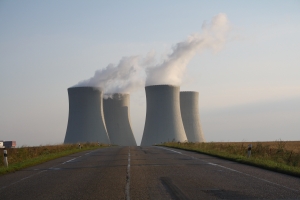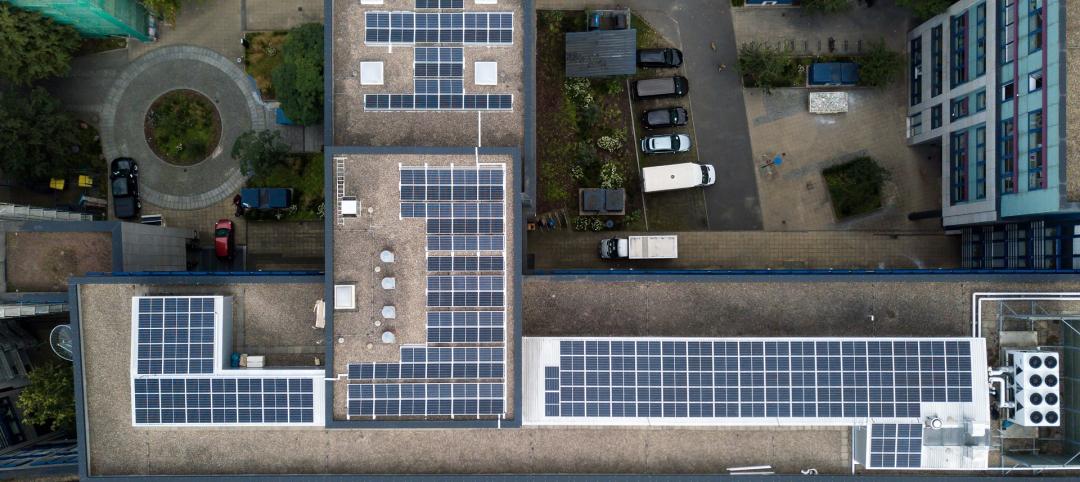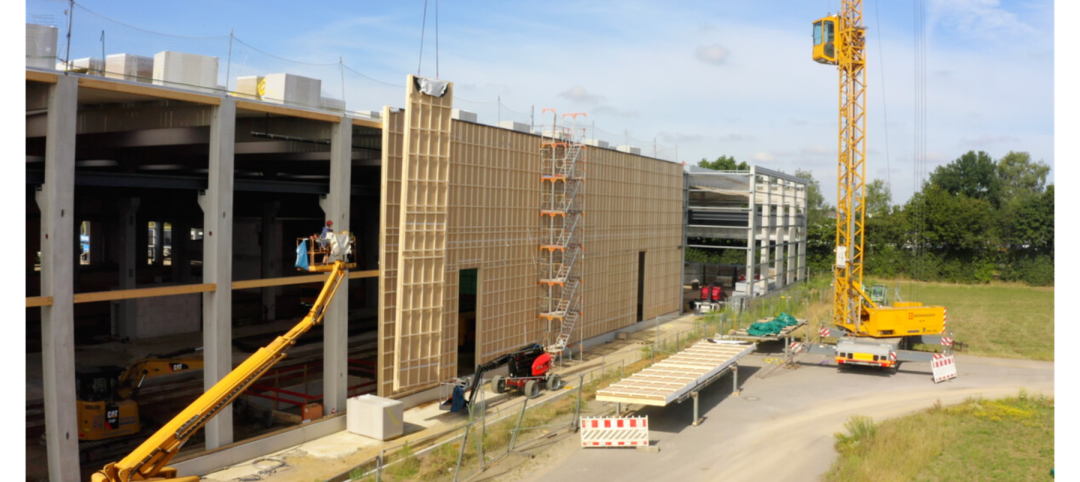On February 27, The American Institute of Architects (AIA) and nearly 1,000 businesses from across the country urged Congress to reject efforts to repeal the law setting goals for reducing fossil fuel use in federal buildings by 2030.
The letter comes in response to reports that the oil and gas lobby pushed to include a repeal of Section 433 of the Energy Independence and Security Act in the bipartisan Shaheen-Portman energy efficiency bill.
“It is unfortunate that the fossil fuel industry has demanded gutting federal energy laws through in the Shaheen-Portman bill,” said AIA CEO Robert Ivy, FAIA. “Sens. Shaheen and Portman have spent more than two years crafting a bipartisan energy efficiency bill. We support the original bill, which has many admirable provisions, but cannot in good conscience support legislation that undermines laws that help the federal government save taxpayers money by conserving energy.”
Last year, the Senate Energy and Natural Resources Committee approved the otherwise bipartisan Shaheen-Portman bill that encourages families, businesses and the government to save energy. It is not clear whether the revised bill can move forward in its current form.
“We remain committed to finding consensus solutions to improve Section 433,” Ivy said. “But so long as its opponents demand a full repeal, we do not believe the bill serves the interests of the American public.”
The letter states that design and construction companies across the country are already designing buildings that meet, and in some cases exceed, the current targets in Section 433. “In fact, Section 433 has enabled design firms to develop new design strategies that they are now using to help private-sector clients reduce their energy loads,” the letter states.
A full text of the letter can be found here. A “Myth vs. Fact” document about Section 433 of EISA can be found here.
Related Stories
Green | Dec 9, 2022
Reaching carbon neutrality in building portfolios ranks high for organizations
Reaching carbon neutrality with their building portfolios ranks high in importance among sustainability goals for organizations responding to a Honeywell/Reuters survey of senior executives at 187 large, multinational corporations. Nearly nine in 10 respondents (87%) say that achieving carbon neutrality in their building portfolio is either extremely (58%) or somewhat (29%) important in relation to their overall ESG goals. Only 4% of respondents called it unimportant.
Green | Dec 9, 2022
Newly formed Net Zero Built Environment Council aims to decarbonize the built world
Global management consulting firm McKinsey recently launched the Net Zero Built Environment Council, a cross-sector coalition of industry stakeholders aiming to decarbonize the built world. The council’s chief goal is to collaboratively create new pathways to cut greenhouse gas emissions from buildings.
Office Buildings | Dec 6, 2022
‘Chicago’s healthiest office tower’ achieves LEED Gold, WELL Platinum, and WiredScore Platinum
Goettsch Partners (GP) recently completed 320 South Canal, billed as “Chicago’s healthiest office tower,” according to the architecture firm. Located across the street from Chicago Union Station and close to major expressways, the 51-story tower totals 1,740,000 sf. It includes a conference center, fitness center, restaurant, to-go market, branch bank, and a cocktail lounge in an adjacent structure, as well as parking for 324 cars/electric vehicles and 114 bicycles.
Energy Efficiency | Dec 6, 2022
Washington state’s Building Code Council mandates heat pumps in all new residential construction
The Washington State Building Code Council has voted to require heat pumps for all new residential construction starting in July 2023. The new mandate has drawn criticism over concerns that it will add costs to housing construction, especially given current supply chain challenges for heat pumps.
Geothermal Technology | Dec 6, 2022
Google spinoff uses pay-as-you-go business model to spur growth in geothermal systems
Dandelion Energy is turning to a pay-as-you-go plan similar to rooftop solar panel leasing to help property owners afford geothermal heat pump systems.
75 Top Building Products | Nov 30, 2022
75 top building products for 2022
Each year, the Building Design+Construction editorial team evaluates the vast universe of new and updated products, materials, and systems for the U.S. building design and construction market. The best-of-the-best products make up our annual 75 Top Products report.
Legislation | Nov 23, 2022
7 ways the Inflation Reduction Act will impact the building sector
HOK’s Anica Landreneau and Stephanie Miller and Smart Surfaces Coalition’s Greg Kats reveal multiple ways the IRA will benefit the built environment.
Green | Nov 13, 2022
NREL report: Using photovoltaic modules with longer lifetimes is a better option than recycling
A new report from the U.S. National Renewable Energy Laboratory (NREL) says PV module lifetime extensions should be prioritized over closed-loop recycling to reduce demand for new materials.
Green | Nov 13, 2022
Global building emissions reached record levels in 2021
Carbon-dioxide emissions from building construction and operations hit an all-time high in 2021, according to the most recent data compiled by the Global Alliance for Buildings and Construction.
Wood | Nov 1, 2022
A European manufacturer says its engineered wood products can store carbon for decades
Metsä Wood, a Finland-based manufacturer of engineered wood products, says its sustainable, material-efficient products can store carbon for decades, helping to combat climate change.

















